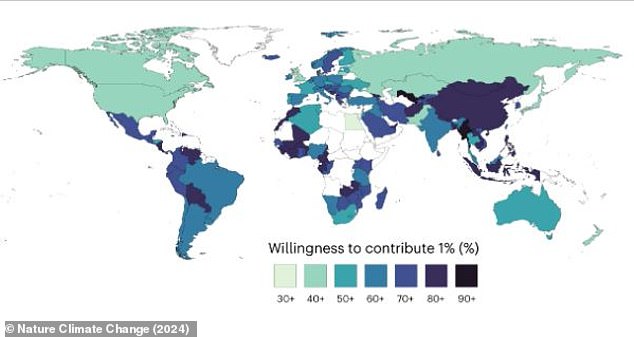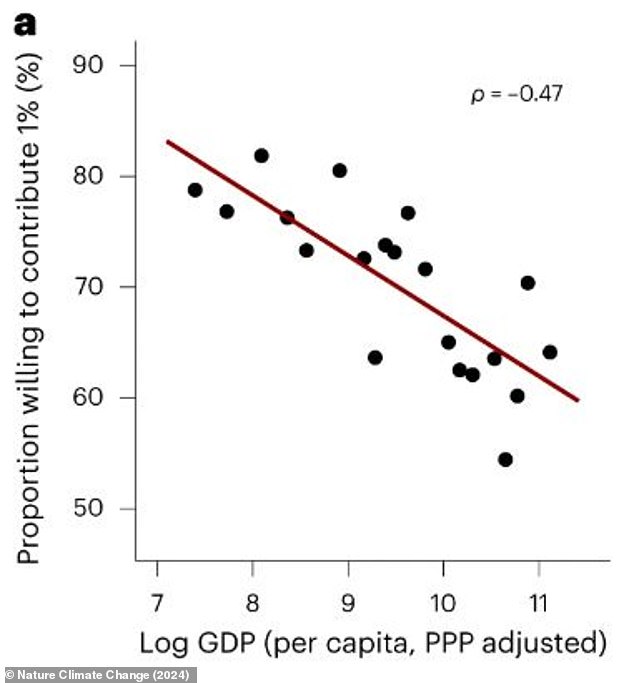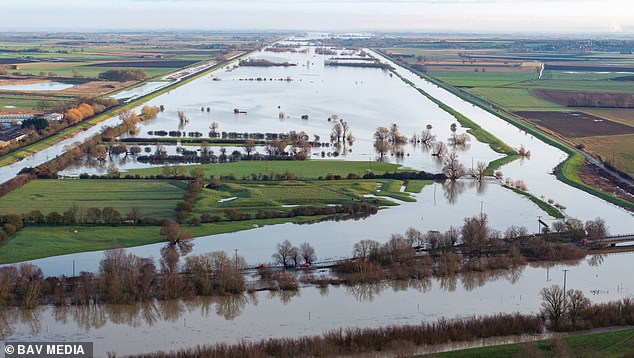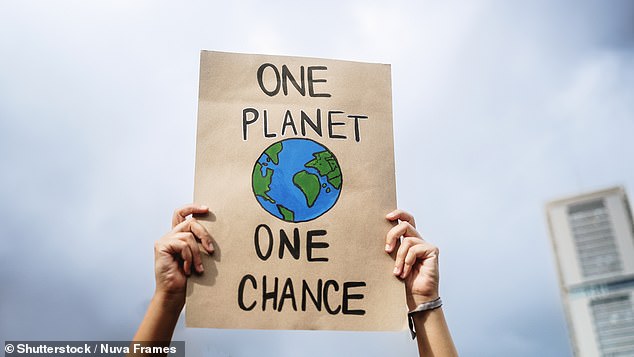From living car-free to installing renewable energy, many of us are trying to do our part to reduce our carbon footprint.
But how far would you be willing to go to stop global warming?
According to a new study, the majority of the world’s population would be willing to make a significant financial contribution to fight climate change.
A global survey of 130,000 people found that 69 percent of the world would donate one percent of their personal income to the cause.
However, this was not the case in the United Kingdom, where only 47.6 percent of Britons said they would be willing to contribute.
From living car-free to installing renewable energy, many of us are trying to do our part to reduce our carbon footprint. But how far would you be willing to go to stop global warming? (archive image)

A global survey of 130,000 people found that 69 percent of the world would donate one percent of their personal income to the cause.
In the study, researchers from the University of Bonn, the Leibniz Institute for Financial Research SAFE in Frankfurt and the University of Copenhagen interviewed subjects from 125 countries.
In any country, the sample size was 1,000 representative individuals, which the authors say is large enough to draw country-level conclusions.
They found that in all but 11 countries, most people would be willing to pay one percent of their income to fight climate change.
Willingness levels ranged from more than 90 percent in some countries such as Myanmar and Uzbekistan, to as low as 30 percent in Egypt.
In general, the researchers found that the richer a country is, the less willing its citizens would be to contribute to the fight against climate change.

In general, the researchers found that the richer a country is, the less willing its citizens would be to contribute to the fight against climate change.
Professor Teodora Boneva, research associate at the University of Bonn, told MailOnline that this trend may be due to two factors.
“First of all, the richest countries are still heavily dependent on fossil fuels,” he said.
“Therefore, the adaptation costs could be considered relatively high and the necessary lifestyle changes too drastic.”
The United Kingdom, for example, which has the eighth-lowest willingness to contribute at 47.6 percent, still relies on fossil fuels for more than three-quarters of its energy needs.
In the United States, where only 48.1 percent of people would be willing to contribute, fossil fuels provide 80 percent of the energy mix and contribute about eight percent of GDP.

Richer countries like the UK (pictured) may be affected by climate change, but they have the resources to limit its impact through spending. Researchers suggest this makes people less willing to pay personally to help.
Professor Boneva also suggests that richer countries may be better prepared to deal with the impacts of climate change.
He said: ‘A country’s GDP per capita reflects its economic capacity to cope with climate change.
“The most direct and immediate consequences are likely to be concentrated in the most vulnerable countries, which have fewer resources to mitigate the negative consequences of the climate crisis.”
The study also found that colder countries were less willing to contribute.
This could suggest that the willingness to pay to fight climate change is affected by the immediacy with which the consequences appear.
However, Professor Boneva also highlights that even in the richest countries support for climate action remains extremely high.
The survey found that worldwide, 86 percent of people supported “pro-climate social norms” and believed that people in their country should try to fight global warming.
What’s more, they found that people’s willingness to contribute financially to the fight against climate change was consistently underestimated.
Researchers say this may actually lead to less willingness to make changes to address global warming.
This is because people are often “conditional cooperators,” meaning they are willing to help, but only if they believe others will help too.
Professor Boneva added: ‘The majority believe they are in the minority.
“People who systematically underestimate public support for climate action are often less willing to act themselves.”

